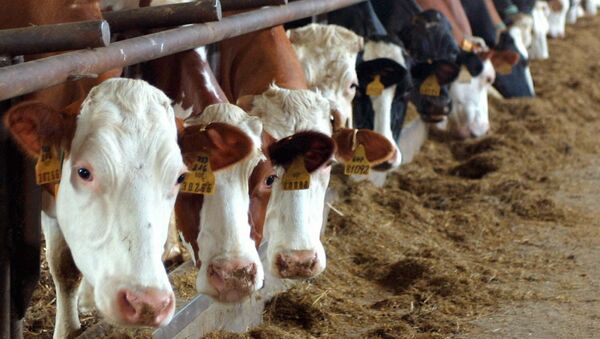"The Russian market played a key role for Madeta until 2014, we supplied one fifth of our products to it. The fact that we lost it at once resulted in a total loss of 150 million koruny [about $6.5 million]", Teply said.
Prior to that, Madeta annually exported about 1,500 tons of dairy products to the Russian market, he said.
After the introduction of the Russian embargo, Madeta was in a difficult economic and industrial situation, the company's head stressed.
"But we did not fire any of the employees, found new consumers for our products, recovered losses and are successfully moving forward", Teply said.
However, the company is well aware that as long as sanctions against Russia are in place, food embargo remains enforced as well, and the prospects for Madeta's return to the Russian market remain unreal, Teply concluded.
Czech Fruit Purchase Prices Fell 20 Persent
The chairman of the Czech association of fruit producers, Martin Ludvik has said that the Russian food embargo has sent purchase prices of domestic producers' fruits in the Czech market down 20 percent and ruined business of some small farms.
"Russia's embargo did not directly affect Czech fruit producers, since they even undersupply domestic market, which leaves market capacities for fruit producers from other EU countries, primarily from neighboring Poland. But our gardeners still felt the indirect result of the embargo. Russia-focused Polish gardeners lost their place on the Russian market at one point and were forced to seek a replacement in other countries, which ultimately led to overheating of the Czech market, primarily in the supply of apples, and sent purchase prices for producers by an average of 20 percent", Ludwik explained.
He also noted that this made the further production of fruits unprofitable for small farms.
According to Ludvik, the indirect influence of the Russian response was the most painful for fruit producers, because it is associated with long-term processes of farm development.
"Vegetable growers, responding to the Russian embargo, were able to somehow adjust their plans as early as the next year after its introduction, scaling down certain types of products depending on the market conditions. But gardeners, unlike them, plant fruit trees for the perspective of five to 10 years, this is a serious financial and industrial investment, not subject to operational review", he said.
Another serious influence of the Russian embargo on Czech horticulture, in addition to lower purchase prices, was that the total area of gardens in the republic fell to 14,000 hectares (35,000 acres) from 17,000 hectares, which is a very significant decrease, he added.
The relations between Russia and the West deteriorated in 2014 in light of the crisis in Ukraine and Crimea's reunification with Russia.
The European Union imposed economic sanctions on Russia, which responded with a food embargo on the bloc's foodstuffs.
In late June, the European Union officially extended its sanctions against Russia until 31 January 2020.




